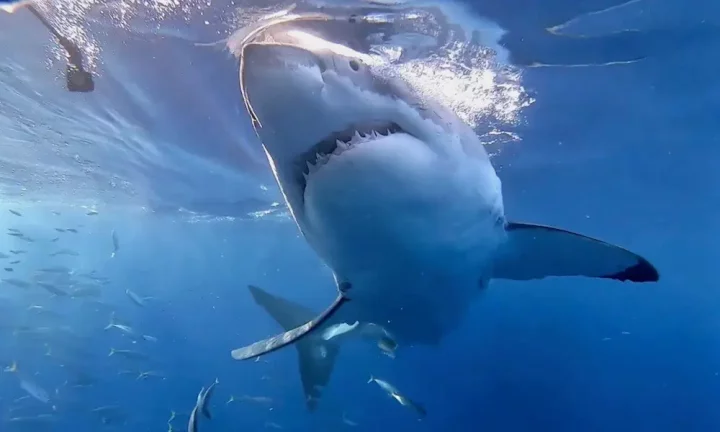
A shocking discovery has been made off the coast of Rio de Janeiro, Brazil, where sharks have tested positive for cocaine.
According to a study published in Science of 'The Total Environment', the presence of cocaine in the sharks' systems is attributed to the continuous release of the drug from inadequate sewage treatment facilities and clandestine refining operations.
Researchers from the Oswaldo Cruz Foundation analysed 13 Brazilian sharpnose shark specimens collected between September 2021 and August 2023. All of the samples contained cocaine in their muscle and liver tissue.
Biologist Rachel Ann Hauser-Davis emphasised the need for further studies to determine the exact consequences of this contamination on the sharks.
She suggested that cocaine exposure could impact growth, maturation, and potentially even the fertility of the sharks, as the liver plays a crucial role in embryo development.
As apex predators, sharks are considered "sentinel species" that can provide early warnings about environmental threats to humans. The study highlights the importance of monitoring pollution's impact on marine life.
While the study didn't explore the specific effects of cocaine on sharks, other research has shown that brown trout can become addicted to methamphetamine.
Moreover, scientists have found that various pollutants, including antidepressants, heavy metals, and birth control medications, are contaminating rivers, lakes, and oceans worldwide
















Comments